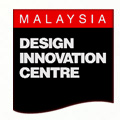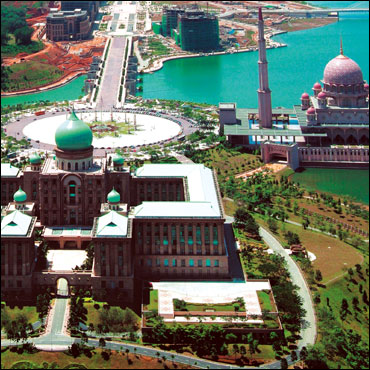Malaysia is a country known around the world for its strong leadership and political stability. We are also perceived to be efficient, peaceful and progressive; where things work well.
And this reputation has now been strengthened by the successful conclusion of Malaysia’s 11th general election.
The conduct of the election and its outcome demonstrated convincingly that the country has arrived at a point of maturity that may have exceeded our expectation.
It was shown by the openness and confidence in holding the election simultaneously with the Malaysian Formula One Grand Prix, a major global sporting event covered by the international media and watched on live telecast by hundreds of millions of people all over the world.
It was shown by the way political parties went about campaigning almost in an air of festivity.
It was shown by the large number of opposition parties and candidates that took part in the election, and who polled a sizeable number of votes in many places.
Above all, it was shown by the calm acceptance by the great majority of Malaysians in the results of the election.
All contributed to the successful election process. All helped advanced our democratic tradition and shaped the image of our country, the brand profile of Malaysia.
The eyes of the world were here. The sense of confidence in our people, communicates a strong message to the world that we are comfortable with the democratic process.
At stake were two key issues: Would Prime Minister Datuk Seri Abdullah Ahmad Badawi be given the big political mandate he sought to carry out his agenda, and could the Barisan Nasional reverse the previous electoral gains of Pas in the Malay heartland states of Kelantan, Terengganu, Kedah and Perlis?
In the event, the triumph was greater than the most optimistic forecast.
Abdullah received a massive personal endorsement by the voters as the country’s leader. His moderate and inclusive style won the hearts of most Malaysians. They like what he is doing and the way he is doing it.
Across the country and across all ethnic groups, they placed their trust in his leadership. The massive will win add momentum to what the BN has already achieved. The coalition has come out even stronger, the brand image more positive, than before.
Buying into the brand
The world media, in their reports on the election, have been supportive. The New York Times described Malaysia as Southeast Asia’s most modern Muslim country and pointed to the F1 race as a symbol of the high level of development that we have achieved.
The Australian commented that Malaysian elections “are free and fair, the ballot boxes are not stuffed”. An international news agency quoted the Hong Kong-based Political and Economic Risk Consultancy as saying, when it comes to evolution of democracy Malaysia is a piece of good news.”
Clearly, the election delivered the results that the outside world expected, and wanted.
Even before the polls, Malaysia had been attractive to foreign investors because of our strong economic fundamentals, political stability and pro-business environment. The election will raise our profile among the global economic and financial community. It will reinforce the view that Malaysia is a good place to do business in.
The International Herald Tribune, in a recent report on Abdullah, revealed that “one important constituency is already behind him: the international financial community.”
The Malaysian Security Exchange was the first to experience the “feel good” factor surrounding the personality and policies of the new Prime Minister. Led partly by foreign buying, the market rallied to a four-year high.
The large foreign investors included Temasek Holdings, an arm of the Singapore Government. In its first investment in Malaysia, the company bought five percent of Telekom Malaysia Bhd for RM1.6 billion early this month.
Malaysia received another boost in February when the biggest US pension fund, California Public Employees’ Retirement System, said it would again invest in the country. CalPers withdrew its investment in Malaysia in 2020 citing social, legal and political reasons.
International investment banker Merrill Lynch described Malaysia as the makeover story of the year, citing the marked change in sentiment among foreign investors since Abdullah come to power.
The Financial Times of London was more direct in its endorsement of Malaysia’s investment revival. “Malaysia is back,” it declared.
Strengthening the brand
In a world full of conflicts, especially in the developing world, we should communicate the peaceful outcome of the election more clearly to the world, to show what the country is all about and the way of Malaysians.
We have gained much goodwill around the world.
If we promote this image of the country, if more around the world know about it, then Malaysia will be a very admired country. That will strengthen the brand image of the country and further expand our trade while attracting more foreign student, tourist and investments.
There is a strong relationship between the image of a country and the perceived quality image of a product that comes from that country. It is very true that a product from a country that enjoys a very positive image will benefit very much from the image of the country itself.
With such a huge mandate, however, comes an equally large responsibility. The expectations are very high.
Therefore, going forward, the performance of the brand and how the delivery process is managed are very important.
In this task, the Prime Minister can count on a very large pool of young as well as experienced hands to help him.
Ninety-four candidates from the youth wings of the Barisan Nasional won their seats. Most of them are below 40 years of age, enthusiastic and highly educated in varied skills.
As the Cabinet the Prime Minister has constructed shows, they have indeed provided him a rich source of talents for the capacity building that he has planned to strengthen the positioning of the country in the global community.

